JUMUN 2019


Diplomats aren’t born, they are made
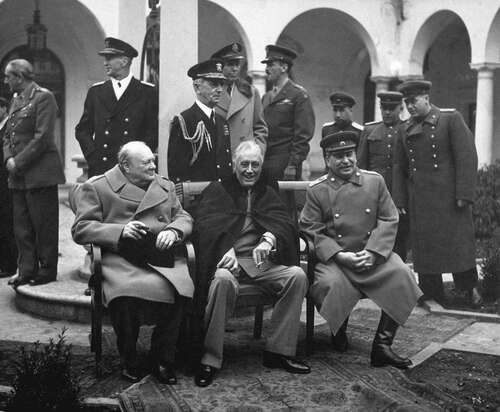
Diplomacy itself is an ancient concept, given its prominence in Europe during the era of Reformation, but the modern society aggrandized by globalization has set a whole new parameter for diplomatic relations. Not only does it serve as a building block for international relations, it is the common language spoken by all representatives of the international community at the United Nations. In order to help competing delegates receive a lucid understanding of the subject, this article is a compact guide to perceive the nuances of diplomacy and its importance as a tool in not just a Model UN, but also in the international community.
Diplomacy is the art of letting someone else have your way.
It is most essential in a committee room and the underlying strain of thought is promotion of domestic interests respectfully. Therefore in an MUN it is usually seen that the best diplomat often gains the title of Best Delegate after the 3 days of intense debate.
What is Diplomacy?
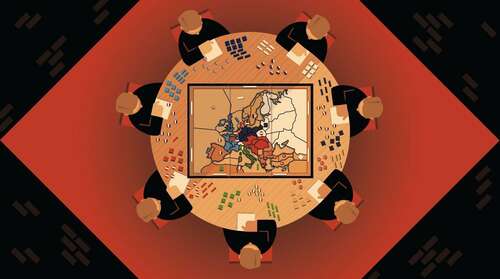
The phrase diplomatic decorum is frequently used in any Model UN and it revolves around a delegate’s manner of speaking and appropriateness of content, adherence to the Rules of Procedure, raising motions and maintaining a respectful decorum at all times. The concept of diplomacy however, is a much broader aspect of international politics than its simple application in a committee room. Theoretically speaking, diplomacy is the method of communication between different parties who are both representatives of states and regular individuals. In the domain of International Relations, diplomacy involves the capacity to conduct negotiations, form alliances and discuss agreements and resolutions by employing tactfulness and discernment.
Diplomacy is not just a skill, but rather a nuanced art rooted in a core subject: maintain personal interest. It may take skill to speak with formality, however, the true art lies in ensuring that a state’s interests are promoted while keeping an eye on common interest and acting in a manner that satisfies all parties. Being the common language of all United Nations members, it is diplomatic dialogue that carves the international landscape and creates world order. Every international treaty, every Security Council or General Assembly resolution, every world summit, and the United Nations Charter itself, all have this one binding concept of upholding diplomacy.
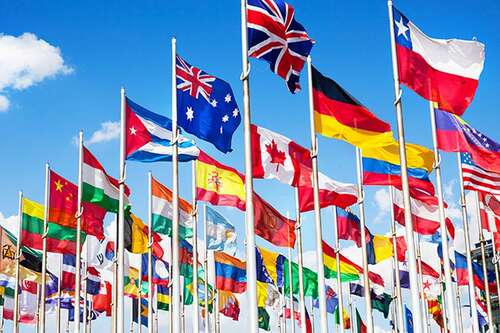
In an MUN, diplomacy goes beyond the Rules of Procedure and is a collection of consistent choices that can influence the direction of debate in the committee. Diplomacy includes the maintenance of a façade to promote an exemplary image of one’s country and all its achievements. A delegate must use the power of persuasion to maintain strategic alliances in accordance with their foreign policy, and push their own agenda in order to effectively control the direction of debate. Most importantly, every delegate must equip themselves to camouflage their country’s flaws and failures and learn the art of defending their domestic policy.
Types of Diplomacy
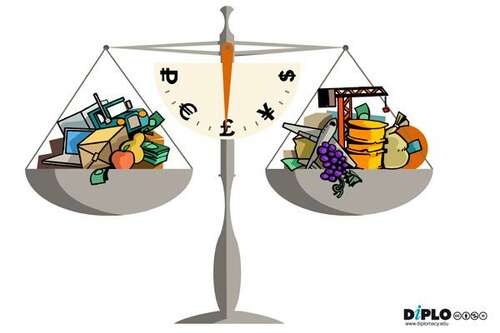
Diplomacy is a wide and holistic concept which can clearly reflect in a delegate’s speech. Political diplomacy is one of the core concepts which is all about a public statement. It can influence military diplomacy which covers issues such as security, personnel and arms trade; electoral diplomacy which includes voting pattern at the UN as well as influence over domestic politics of other parties while clearly easing the pathway for economic diplomacy.
Economic diplomacy is a form of diplomacy that utilizes economic tools to promote national interests and is linked to policy decisions designed to influence exports, imports, investments, lending, aid, free trade agreements, etc. It is an umbrella idea which encompasses:
Trade diplomacy is vital as it influences the economic relations between countries and the trade agreements signed between such partner (eg. NAFTA). Trade diplomacy also defines trade partners preferences between countries which also affects the tariffs i.e duties on exports and imports, imposed by a country. Better trade diplomacy implies better economic relations which stimulates a country to lower the tariffs on imports from another country, extend adequate subsidies in order to maintain foreign trade of commodities. Often trade diplomacy can result in negative consequences between two nations which is followed by strict regulations in foreign trade and high tariffs on the imports of the respective countries. A prominent example of such bitter relations is the ongoing trade war between the US and China which kicked in when tariffs worth 34 billion dollars was imposed on Chinese goods at midnight on the 6th of July 2018, which resulted in retaliatory measures by the Chinese government as well.
Labour diplomacy to create employment, wage security and also promote core labour standards of the ILO. It also includes in its ambit, aspects of immigration that affects a country's workforce and the outsourcing of labour.
Industrial diplomacy is important for trade partners in order to determine imports, exports, operations of MNCs as well as trade agreements to boost employment. Industry is valuable for expanding infrastructure, creating jobs and facilitating a strong domestic market but these aspects are influenced by industrial diplomacy and this forms of diplomacy demands conciliatory economic ties between countries.
Educational diplomacy is important in order to ensure research and development projects in a country, creation and export of human capital, maintenance of human resources as well as promotion of information sharing between allies to boost technology that is significant in determining the industrial growth of a country.
Diplomacy also includes important yet often ignored concepts like Cultural Diplomacy to promote exchange programs and joint occasions and cultural festivals, as well as Sports Diplomacy which involves the hosting and participation in sporting events to maintain inclusion. A prominent example of such cultural exchange and goodwill is the invitation of the Heads of State of India's ASEAN partners to the 2018 Republic Day celebrations as a tool to promote the Act East Policy in order to boost diplomatic and trade relations. Such forms of diplomacy are integral aspects of the ‘soft power’ of a nation which is used to extend international influence and ascendancy.
Diplomacy Today
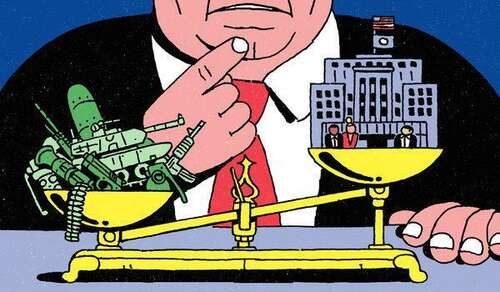
One of the best examples of Indian diplomacy is the policy of NAM after independence to centralize our economic prowess and remain neutral in an increasingly polarized world. Another such example is the neutrality maintained by India in the Middle East problems to mediate between USA and Russia on the Israel- Palestine question. Of all the most recent global issues, India’s skill in lobbying ensured a unique waiver by the Nuclear Supplier Group from the rules governing civilian nuclear trade. This also demonstrates the vitality of lobbying in international politics and the committee room as well to promote personal interests. Recently the Tier 1 waiver from the Trump Presidency is also an example of military diplomacy between the US and India.
Globally speaking, diplomacy can affect the voting pattern of a nation at the UN when we consider the country of Japan who usually votes in favour of US agenda. Apart from mainstream groups like the European Union and the NATO; regional diplomacy through Organisation of Islamic Cooperation, Shanghai Cooperation Organisation, SAARC, African Union etc. ensures the promotion of common regional interests by certain countries in the international forum. These forums are in fact geopolitical organizations that are formed to maintain multilateral diplomacy and eventually become a strong force in international politics. Driven by an urge to pursue stronger economic and diplomatic ties, regional diplomacy is gaining importance to expand political understanding and mutual security. These regional groups act as significant building blocks to formally sway international diplomacy and promote the priorities of neighbouring states in the global forum.
Diplomacy 101 at a Model UN:
Research: for an idea about the country’s stance, interests and alliances to speak appropriately on different occasions.
Understand all opinions: to consider opposing arguments and find a mutually satisfying solution.
Importance of procedure: to avoid compromising one position in debates by frequent corrections from the chair.
Cognizance of wording and content: framing a speech and word usage is most important to maintain stance and indicate influence in the committee.
Respect, respect, respect: ridicule or crude contempt towards other parties is lethal to one’s agenda and can reflect on the mark sheet as well.
Allies: other than formal speeches, the skill of lobbying and communication comes into play in order to agree on common issues and mutual agreements.
Listen, listen, listen: not only is it important for diplomatic decorum but also is essential when raising Points of Information and can also shape one’s speeches and their stance.
Remember target: the state’s own interests are the ultimate goal and committee should end with your country having gained certain benefits.
So we must remember, diplomacy is about true respect, and understanding of other sides, and genuinely attempting to find mutually satisfactory solutions or courses of action. It is not an art of filibuster or pretentious goodwill, but rather the practice of the subtle art that has single-handedly shaped civilization and world order.